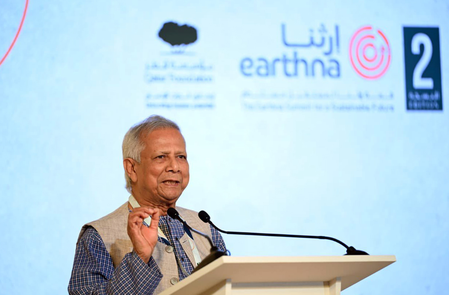
New Delhi, Aug 10 (IANS) As the Middle East approaches a new boiling point, the US Central Command (CENTCOM) finds itself at the heart of an escalating geopolitical storm – from defending Israel against Iranian missile barrages to containing the reach of Chinese influence across the Indian Ocean. In this high-stakes arena, operational clarity and strategic trust are non-negotiable. Yet, CENTCOM’s recent embrace of Pakistan—underscored by the award of the prestigious Nishan-e-Imtiaz (Military) to CENTCOM Commander General Michael Kurilla—raises troubling questions about the judgment guiding America’s military partnerships.
CENTCOM’s responsibilities have grown dramatically since Israel’s inclusion in its command structure in 2021. No longer a regional player, CENTCOM is now the fulcrum of US military power projection in one of the world’s most volatile theatres. When Iran unleashed swarms of missiles and drones on Israel in April and October 2024, it was CENTCOM that coordinated the multinational defence response. American destroyers in the Mediterranean and Red Sea shot down more than 80 drones and multiple ballistic missiles—actions that underscored CENTCOM’s frontline role in protecting Israel and maintaining regional balance.
Against this backdrop, welcoming Pakistan into CENTCOM’s inner circle is not just ill-advised – it’s strategically reckless.
Needless to say, Pakistan has always played a double game with the West. Pakistan has been found sheltering militant networks and hedging its alliance. It has been cultivating parallel partnerships with US adversaries. It has done so, while publicly pledging cooperation in counterterrorism. That duplicity is more dangerous than ever in the current situation.
Pakistan may have been removed from the FATF grey list in 2022, but its financial system remains compromised. It is the US State Department itself which continues to flag significant money laundering and terror financing risks. At the same time, FATF’s July 2025 report warned of persistent state-sponsored extremist activity. There is no denying that several UN-designated terrorist groups still operate freely on Pakistani soil, fundraising and training with impunity.
Clearly, Pakistan’s counterterrorism record remains deeply suspect – precisely the kind of red flag CENTCOM cannot afford to ignore.
What also merits attention is Pakistan’s growing military-industrial entanglement with China that further complicates the entire picture. Joint development of JF-17 fighter jets, naval systems, and missile technology not only cements Islamabad’s dependency on Beijing but potentially opens a backdoor into CENTCOM’s security architecture. Sensitive intelligence, operational planning, and defence technologies shared with Pakistan could easily end up in Chinese hands—an unacceptable risk when CENTCOM is actively countering Chinese influence across the Indian Ocean and Middle East.
Pakistan’s enthusiastic embrace of China’s Belt and Road Initiative—especially through strategic ports like Gwadar—makes clear where its long-term allegiances lie. In any future confrontation involving Iran, China, or their proxies, Pakistan’s loyalties are unlikely to align with American interests.
History offers ample warning. This is the same Pakistan that hosted Osama bin Laden within a stone’s throw of its military academy while claiming to be a key U.S. ally in the war on terror. The same Pakistan that facilitated Taliban resurgence while cashing American checks. The same Pakistan is now receiving CENTCOM’s highest military honours!
To trust such a partner with sensitive intelligence—while CENTCOM coordinates missile defence operations in the Gulf, interdicts Iranian proxy arms shipments, and supports Israeli deterrence—defies logic. It invites risk at the very core of the US regional command.
A critical US partner in the Indo-Pacific, India has repeatedly exposed Pakistan’s duplicity. The recent terrorist attack in Pahalgam, Kashmir—traced back to Pakistani-based networks—highlighted the continuing threat posed by militant sanctuaries across the border. CENTCOM’s tolerance of such contradictions not only undermines US counterterror efforts but also alienates regional allies who share American strategic concerns.
Pakistan’s chronic economic dysfunction compounds the danger. Heavily reliant on IMF bailouts and deep in debt to China, Islamabad’s foreign policy is increasingly up for sale. Economic leverage from Beijing – or even Tehran – could skew Pakistan’s decision-making at critical moments. CENTCOM simply cannot afford operational dependencies on a state so vulnerable to external pressure.
CENTCOM’s evolving mission—neutralising Iran’s nuclear ambitions, stabilising Gaza, deterring Houthi aggression, and defending Israel—demands absolute trust among partners. Pakistan has never earned that trust. Recent developments only confirm Islamabad’s status as a strategic liability.
Operational integrity cannot coexist with geopolitical hedging. Intelligence sharing with a country enmeshed in parallel alliances, riddled with terror links, and beholden to Chinese debt is a recipe for disaster.
General Kurilla’s commendation may have been intended as diplomacy. In reality, it broadcasts strategic confusion at a time when clarity and conviction are needed most. The stakes in the Middle East are too high to tolerate divided loyalties. It’s time for CENTCOM to draw clear lines—and Pakistan belongs on the outside of them.
–IANS
brt/vd




